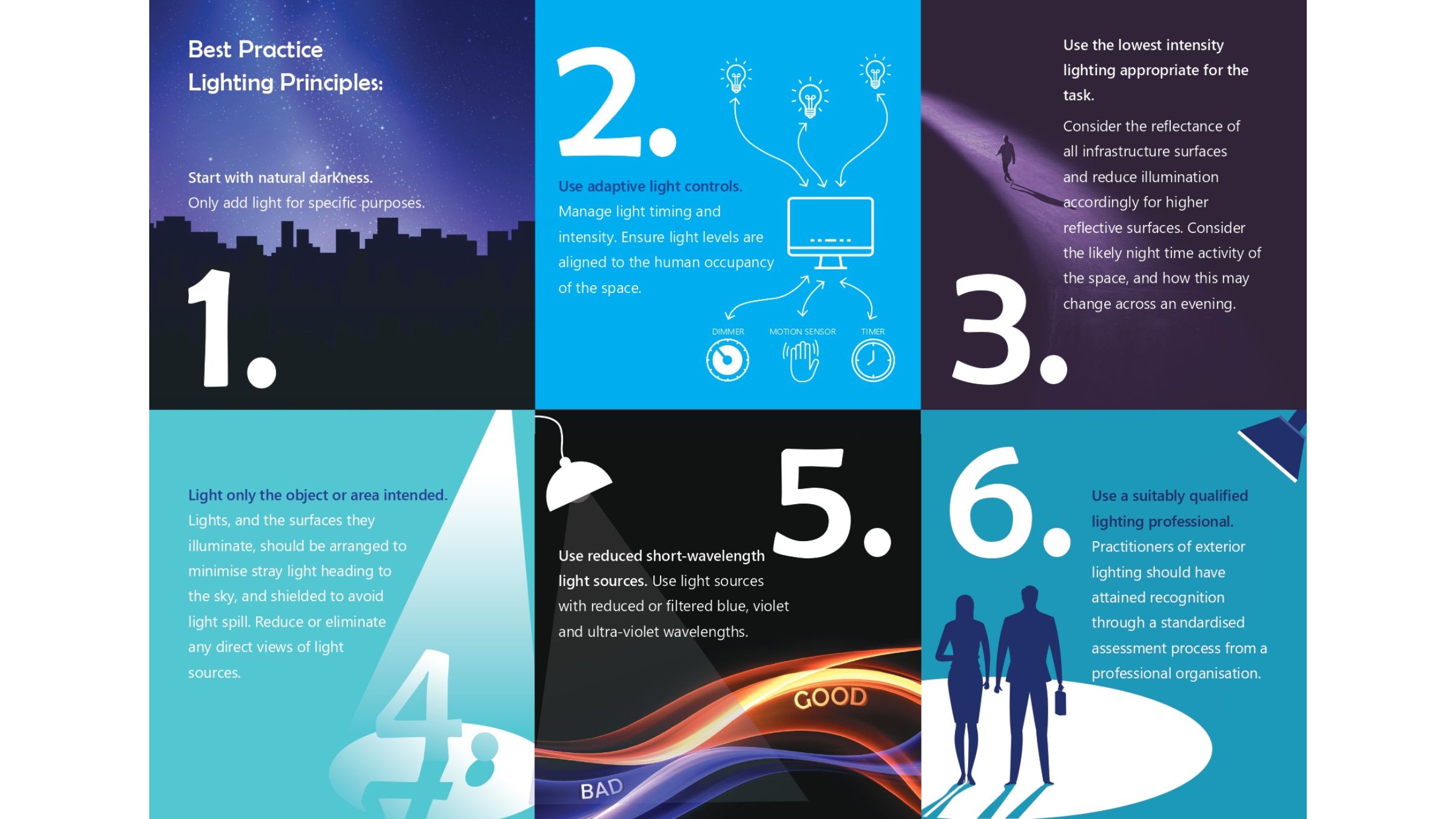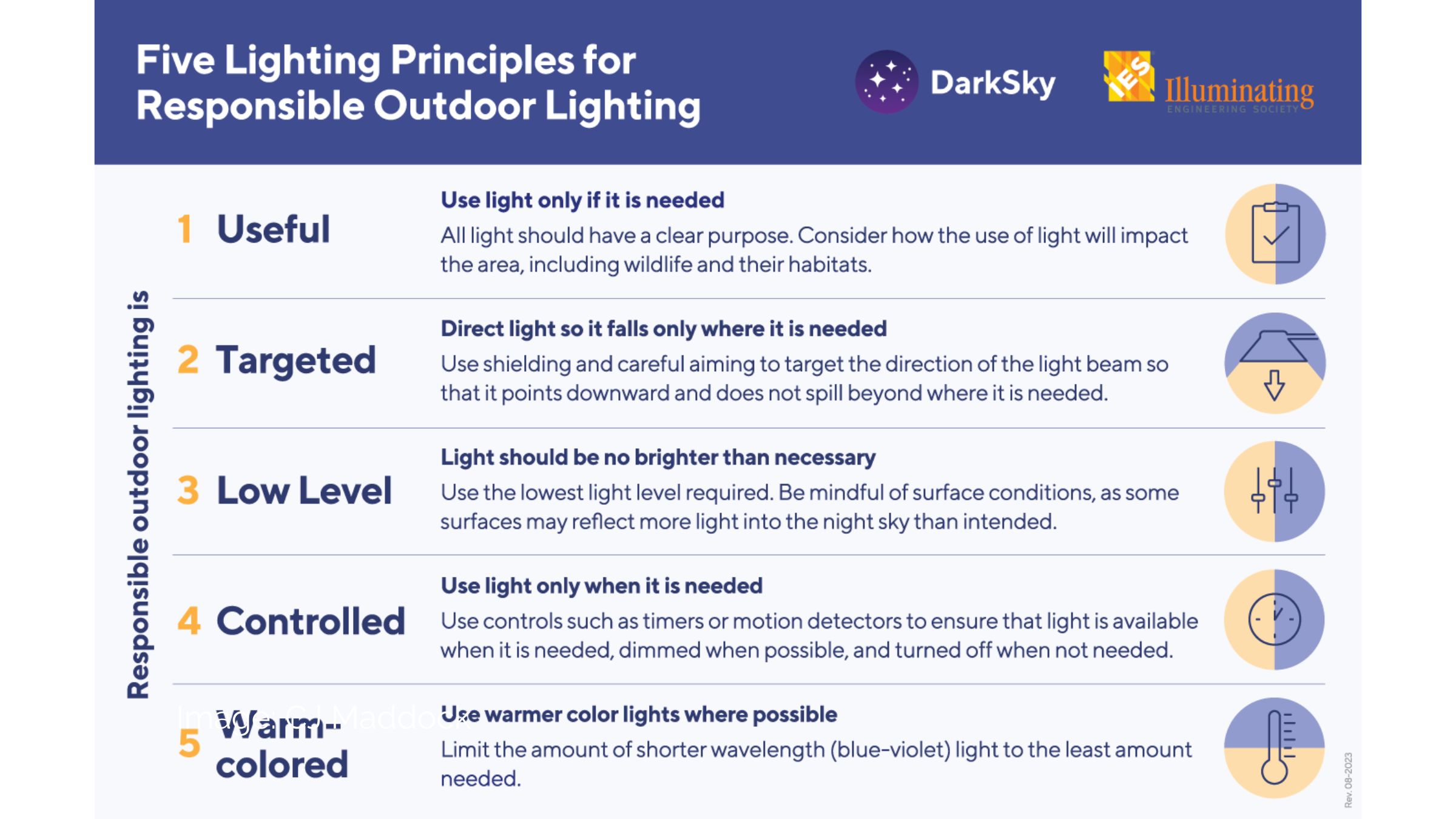Responsible Lighting
We can all help reduce light pollution to protect our dark night sky, wildlife at night, human health, the cultural heritage of the night sky, and nocturnal ecosystems.
Light pollution is a global issue caused by excessive or poor use of artificial light at night. Light pollution disrupts normal wildlife behaviours, affects the human sleep cycle (circadian rhythm), and hides the view of the stars.
Responsible lighting management ensures that only the right amount of light is used, and only where it is needed. By using good lighting practices, unnecessary lighting and upward light is eliminated. Good practices reduce over-lighting, glare, and lighting that spills out beyond its intended area of use.
How can you help reduce light pollution?
By using smart and sensible lighting we can all reduce light pollution, save the view and cultural heritage of the night sky, protect wildlife and improve our human health. Here are some principles
for responsible outdoor lighting you can start using tonight:
- Is a light necessary? Only install a light if it is needed for a specific purpose.
- Direct light so it falls only where it is needed.
- Use the lowest light level required.
- Turn on the light only when it is needed.
- Use warmer coloured lights where possible.
- Use a suitably qualified lighting professional.
- Become a dedicated dark sky devotee by joining the Australasian Dark Sky Alliance (ADSA).
- Choose ADSA Approved Lighting for your next project.
Discover the Best Practice Lighting Principles from the Australasian Dark Sky Alliance.
Discover the Five Lighting Principles for Responsible Outdoor Lighting with DarkSky International.


